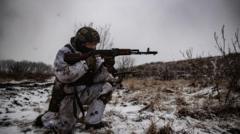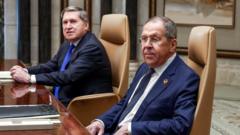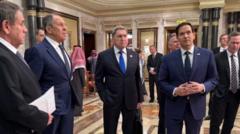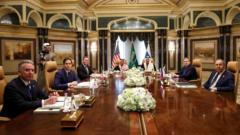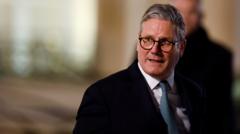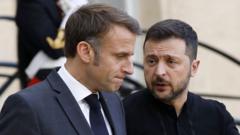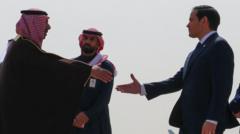The remarks from Pete Hegseth reflect the evolving dynamics of US foreign policy towards Ukraine, signaling potential shifts in support and strategic military aid.
Hegseth Declares Ukraine's Return to 2014 Borders 'Unrealistic'
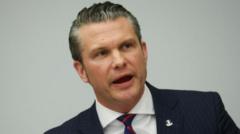
Hegseth Declares Ukraine's Return to 2014 Borders 'Unrealistic'
US Defense Secretary expresses skepticism over Ukraine's pre-war territorial ambitions and emphasizes the need for pragmatic peace strategies.
In a recent meeting of the Ukraine Defence Contact Group in Brussels, US Defense Secretary Pete Hegseth conveyed that expecting Ukraine to revert to its pre-2014 borders is “unrealistic.” This assertion comes in light of Russia's annexation of Crimea and ongoing territorial disputes in eastern Ukraine. Hegseth’s position indicates that a practical understanding of the battlefield is essential for establishing a durable peace, which he articulated amid a gathering of over 40 countries allied with Ukraine.
Echoing sentiments that could dampen Ukrainian optimism, Hegseth stated, “Chasing this illusionary goal will only prolong the war and cause more suffering.” His comments underscore significant implications for Kyiv, which has steadfastly asserted its goal of reclaiming its lost territories, while also pursuing NATO membership with the backing of certain member states, including the UK.
The backdrop of Hegseth’s remarks sheds light on the direction of the Trump administration’s policy on the conflict, notably highlighting the skepticism towards NATO's enlargement as a feasible outcome of diplomatic negotiations with Russia. Instead, he proposed that any future peace plans should encompass "robust security guarantees," which should involve European and other allied countries, albeit outside the NATO framework and without the protective umbrella of Article 5 of the alliance’s mutual defense agreement.
In this context, Hegseth conveyed a clear expectation for European nations to shoulder a larger proportion of military aid to Ukraine, signaling a shift toward European responsibility in ensuring regional security amidst rising failure perceptions of the US approach towards the conflict. "Safeguarding European security must be an imperative for European members of NATO," he remarked.
While the US continues to supply substantial military assistance to Ukraine, Hegseth noted Trump’s critical stance toward ongoing support, framing his administration’s priority as the need to conclude hostilities sparked by Russia's invasion in February 2022.
Simultaneously, Ukrainian President Volodymyr Zelensky expressed his willingness to engage in peace negotiations from a position of strength, hinting at a possible territory exchange concept. However, he remains non-committal on specifics regarding land that could be offered in negotiations. His previous conversations with Trump hinted at a possibility of expediting peace talks, with an openness to involve US companies in reconstruction efforts in Ukraine post-conflict.
Despite ongoing discussions on the future of Ukraine, there remains substantial uncertainty about the viability of an agreement that satisfies both sides, with critics of Trump warning against an overly conciliatory approach toward Russia that could threaten European stability.



